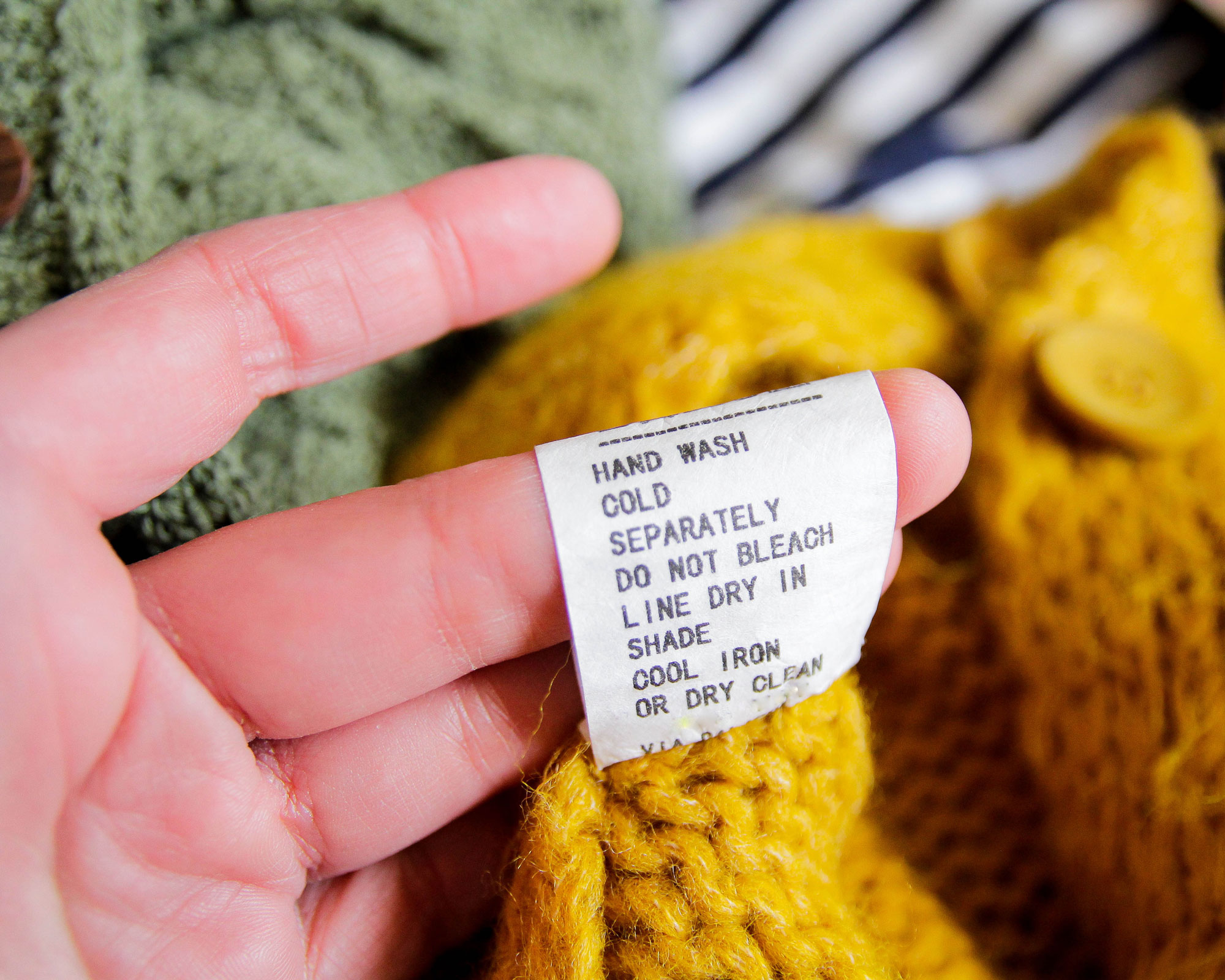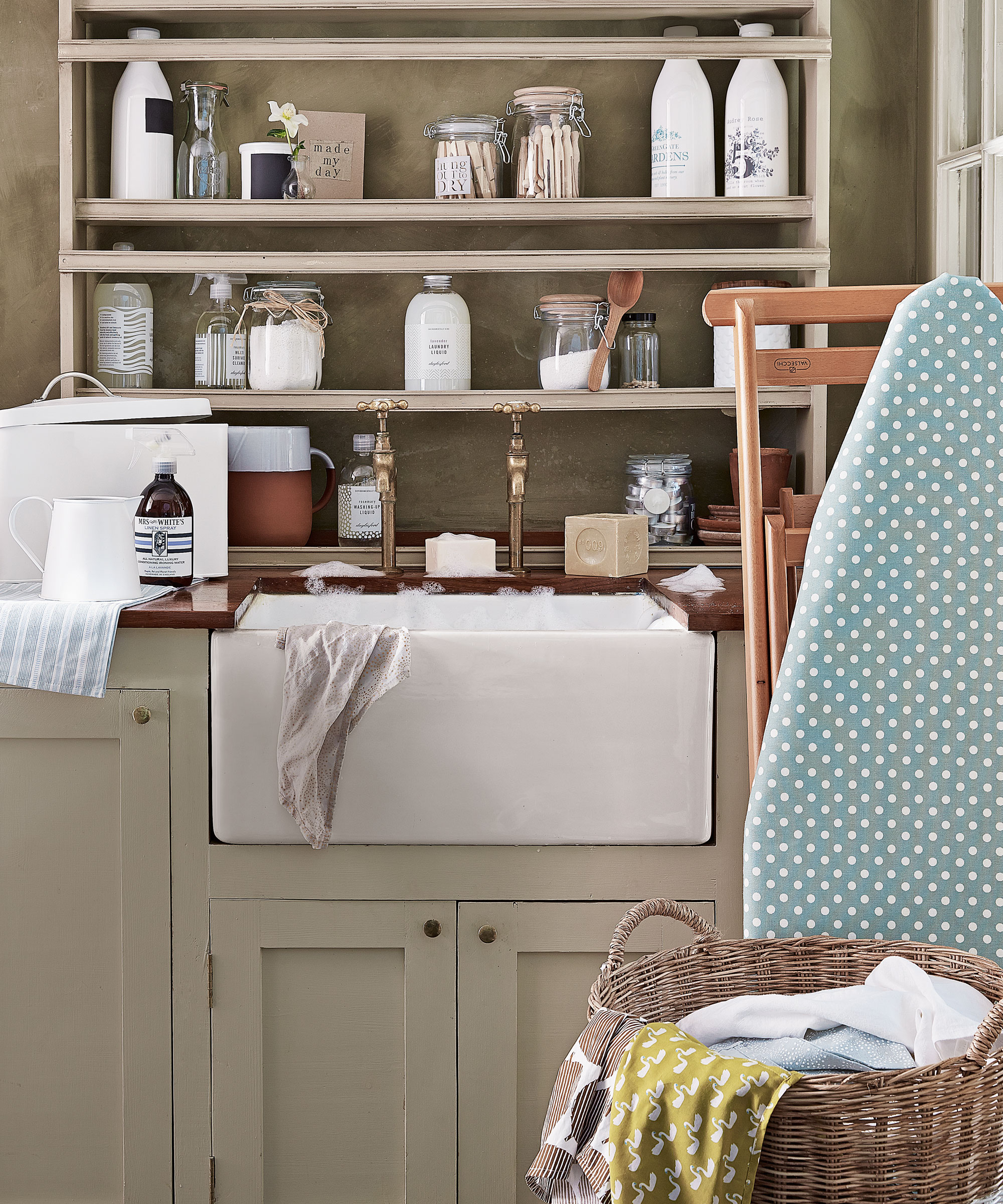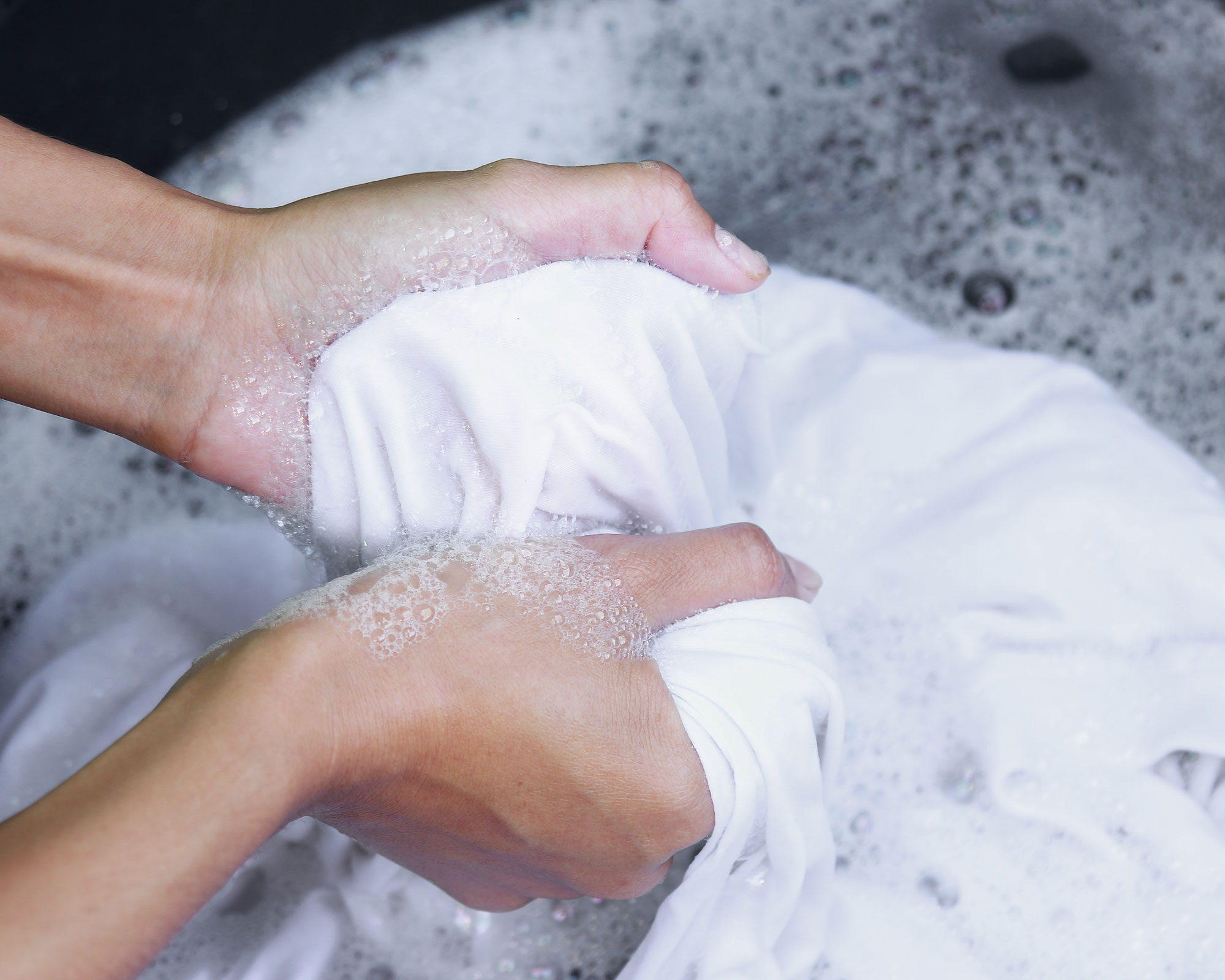How to hand-wash clothes – to keep your delicates in tip-top condition
Learn how to take care of clothes that require a more 'delicate' touch with our step-by-step guide, approved by the pros

When laundry day rolls around, it can be tempting to chuck everything into the washer… a delicate or hand-wash setting should do the job, right? However, there are some items you need to treat with a little TLC if you want to keep them looking (and feeling) lovely. Whether it’s a favorite cashmere jumper, a pricey silk blouse, or lacy delicates, knowing how to hand-wash clothes the right way, is the only way to ensure the best results.
Knowing what – and when – to hand-wash is more useful than you might think when it comes to how to do laundry. Even if you don’t own much in the way of ‘delicate’ clothing, it's handy to master; for smaller loads, when traveling, for heavily stained garments, or as an alternative to costly laundromat trips.
It’s also a lot easier than you might think, too. We’ve put together a simple step-by-step guide, along with top tips and advice from experts in the laundry world, to ensure you get the job done properly. You – and your clothes – can thank us later.
How to handwash clothes – a step by step guide
Before doing anything, read your clothing labels. If the laundry symbol is a hand in the water, that means it’s safe or handwashing. However, be aware that if there’s a cross over the twisted symbol, you shouldn’t wring the item at any point.
It can also be useful to familiarize yourself with the types of items that usually do better with hand-washing; any items that feature embellishments, such as lace, beading, or crochet for example. You might want to make hand-washing undergarments and sweaters a habit as well; the fabrics tend to be delicate anyway, and even if they’re not, they’ll retain their shape better.
When washing by hand, a lot of the same laundry rules apply. You’ll need to know how to sort clothes for laundry and be clear on the mistakes to avoid when washing whites, too. Group items by type and by washing instructions beforehand to speed up the process.

1. Pre-treat stains
‘Go through each item and check for stains. If any are found, use a spot-treating solution or make your own using white vinegar and water. Soak a towel in the solution and gently apply to the affected area until it begins to solve – around 10-15 minutes,' says Matt Connelly, CEO of dry cleaning and laundry network, I Hate Ironing.

Matt Connelly is the Founder and CEO of I Hate Ironing, a British dry cleaning and laundry service.
2. Fill the sink

Whether you’re using a kitchen or bathroom (we’d recommend the former, as they tend to be a bit roomier), start off by giving it a good clean. Fill it with warm water (unless the washing instructions state otherwise) and pour in your laundry detergent.
'Add a small amount designed specifically for the type of item you’re washing – a little goes a long way. Avoid using hot water, bleach, or fabric softeners, as these can cause damage to the fibers,' says Sebastian von Marttens, founder of Andes Alpaca.
‘This soap stick, at Meliora, comes in solid form, so it’s ideal for going after the dirtiest bits of clothing and is small enough to take on any journey – there’s no liquid either, so it’s carry-on friendly,' says Kate Jakubas, founder of Meliora Cleaning Products.
3. Swish items – gently
Submerge items into the water and gently swish until they’re saturated. While it’s ok to wash more than one item at a time (as long as they’re similar colors), don’t overcrowd the sink. Sebastian recommends using a gentle hand; ‘try not to rub, twist or wring items if you can, as this can damage the fibers,' he explains.
4. Leave to soak
Leave the items to soak in the water for about 15 minutes or so, a little longer if they’re particularly stained.
5. Rinse and repeat if necessary

‘You may be surprised at what you see when you return to your washing, but don’t be phased; dirty water is a result of dirt and grime being lifted from the fabric, so it’s a good sign,' says Andy Voggenthaler, a lifetime athlete and founder of laundry detergent brand, Nonaste.
Drain and refill the sink with clean, cool water. Rinse out the items, swilling gently. If the water is still sudsy at the end, repeat the process until it remains clear.
How to dry hand-washed clothes
Your clothes are now ready to dry. Remove them from the water, gently press the water from them, then lay them flat on a dry towel. If they required hand-washing in the first place, chances are they’re not going to be suitable for a dryer, so air drying is your best bet.
Hanging them soaking wet can cause them to lose their shape, so leave them on the towel to begin with (you can place another one on top to help speed up the process) then lay them across a large airer to dry, away from direct sunlight.
Once you’ve mastered the art of hand-washing items, you might want to consider learning how to dry-clean clothes at home, too; the process is fairly similar in terms of the effort required.
FAQs
Is it effective to wash clothes by hand?
When applied to the right garments, and done properly, hand-washing can be just as effective at cleaning clothes as a machine.
‘You have more control over the cleaning process and can apply more pressure to areas that need extra attention,' says cleaning professional Ahmad Jamal at Cleaners Advisor. It can also be a more environmentally-friendly – and less costly – option since it requires less energy and water compared to machine washing.
However, it can be time-consuming and impractical for larger loads. It’s not as effective at sanitizing clothes, either. While it’s a useful option for certain items and in certain situations – such as traveling – it’s not always the most effective method for all types of laundry.'

Ahmad is a self-proclaimed 'clean-freak', with years of experience tackling tough cleaning projects and advising others on how to deal with the worst of messes.
When should you avoid hand-washing clothes?
We know it’s tempting, but if an item of clothing says ‘dry clean’ on the label, adhere to it. The clue’s in the name; saturating these items with water is not a good idea, and you don’t want to risk disappointment.
While it won’t do any harm, bulkier, more durable items, such as washing towels, bed linen, and heavy sports clothing tend to require a hotter wash to ensure they’re properly sanitized.
Does hand-washing clothes sanitize them?
In short, no. The temperatures required to sanitize clothes are way above what your hands would be able to handle, unfortunately. However, steaming or ironing clothes afterward should do the job.
Any natural alternatives to hand-washing detergents?
With so many detergents to choose from, it can be hard to know what to go for. In our view, the more natural you can go, the better, particularly if you’re prone to sensitive skin. If you want to know exactly what’s going into your clothing, you could learn how to make laundry detergent yourself.
‘Natural alternatives can be gentler on your clothes, and can help to whiten them without the need for bleach’, says Matt Connelly. ‘A solution made up of white vinegar and water will naturally disinfect clothes, while half a cup of baking soda dissolved into the water beforehand will help to remove odors and stains’.
‘You may also want to consider using soapnuts (available to buy at Walmart) as a natural, sustainable alternative to traditional detergents,' says Ahmad. ‘Place the shells into a sock or muslin bag and let them dissolve in warm water. Squeeze to extract the soap, then wash as normal.'
It may not be what you want to hear, but sometimes the best thing you can do for your clothes is swap the washing machine for a more 'hands-on' approach. It feels like a hassle, we know, but while care instructions vary, the same step-by-step method applies across pretty much every item, so once you've mastered that, it'll be a breeze.
Sign up to the Homes & Gardens newsletter
Design expertise in your inbox – from inspiring decorating ideas and beautiful celebrity homes to practical gardening advice and shopping round-ups.
For 10 years, Tara King worked as a Content Editor in the magazine industry, before leaving to become freelance, covering interior design, wellbeing, craft and homemaking. As well as writing for Ideal Home, Style at Home, Country Homes & Interiors, Tara’s keen eye for styling combined with a passion for creating a happy – and functional – family home has led to a series of organization and cleaning features for H&G.
-
 Miley Cyrus breaks a cardinal decorating rule with her 'floating table' – her unexpected layout transforms a dead space into a stylish breakfast area
Miley Cyrus breaks a cardinal decorating rule with her 'floating table' – her unexpected layout transforms a dead space into a stylish breakfast areaThe singer tosses aside the maxim that furniture shouldn't be floating in the middle of the room with an innovative kitchen layout
By Sophie Edwards Published
-
 It’s a concept straight out of a fashionista's playbook, but I used the Sandwich Method to organize my kitchen shelves – it’s never looked sleeker
It’s a concept straight out of a fashionista's playbook, but I used the Sandwich Method to organize my kitchen shelves – it’s never looked sleekerIt transformed messy to mesmerizing in a matter of seconds
By Punteha van Terheyden Published